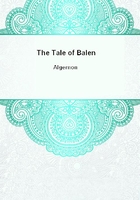
第45章 CHAPTER I(7)
Further on walks a horned beetle, and near him starts open the door of a spider, who peeps out carefully, and quickly pulls it down again. On a karoo-bush a green fly is laying her silver eggs. We carry them home, and see the shells pierced, the spotted grub come out, turn to a green fly, and flit away. We are not satisfied with what Nature shows us, and we see something for ourselves. Under the white hen we put a dozen eggs, and break one daily, to see the white spot wax into the chicken. We are not excited or enthusiastic about it; but a man is not to lay his throat open, he must think of something. So we plant seeds in rows on our dam-wall, and pull one up daily to see how it goes with them. Alladeen buried her wonderful stone, and a golden palace sprung up at her feet. We do far more. We put a brown seed in the earth, and a living thing starts out-- starts upward--why, no more than Alladeen can we say--starts upward, and does not desist till it is higher than our heads, sparkling with dew in the early morning, glittering with yellow blossoms, shaking brown seeds with little embryo souls on to the ground. We look at it solemnly, from the time it consists of two leaves peeping above the ground and a soft white root, till we have to raise our faces to look at it; but we find no reason for that upward starting.
We look into dead ducks and lambs. In the evening we carry them home, spread newspapers on the floor, and lie working with them till midnight.
With a started feeling near akin to ecstasy we open the lump of flesh called a heart, and find little doors and strings inside. We feel them, and put the heart away; but every now and then return to look, and to feel them again. Why we like them so we can hardly tell.
A gander drowns itself in our dam. We take it out, and open it on the bank, and kneel looking at it. Above are the organs divided by delicate tissues; below are the intestines artistically curved in a spiral form, and each tier covered by a delicate network of blood-vessels standing out red against the faint blue background. Each branch of the blood-vessels is comprised of a trunk, bifurcating and rebifurcating into the most delicate, hair-like threads, symmetrically arranged. We are struck with its singular beauty. And, moreover--and here we drop from our kneeling into a sitting posture--this also we remark: of that same exact shape and outline is our thorn-tree seen against the sky in mid-winter: of that shape also is delicate metallic tracery between our rocks; in that exact path does our water flow when without a furrow we lead it from the dam; so shaped are the antlers of the horned beetle. How are these things related that such deep union should exist between them all? Is it chance? Or, are they not all the fine branches of one trunk, whose sap flows through us all? That would explain it. We nod over the gander's inside.
This thing we call existence; is it not a something which has its roots far down below in the dark, and its branches stretching out into the immensity above, which we among the branches cannot see? Not a chance jungle; a living thing, a One. The thought gives us intense satisfaction, we cannot tell why.
We nod over the gander; then start up suddenly, look into the blue sky, throw the dead gander and the refuse into the dam, and go to work again.
And so, it comes to pass in time, that the earth ceases for us to be a weltering chaos. We walk in the great hall of life, looking up and round reverentially. Nothing is despicable--all is meaning-full; nothing is small--all is part of a whole, whose beginning and end we know not. The life that throbs in us is a beginning and end we know not. The life that throbs in us is a pulsation from it; too mighty for our comprehension, not too small.
And so, it comes to pass at last, that whereas the sky was at first a small blue rag stretched out over us, and so low that our hands might touch it, pressing down on us, it raises itself into an immeasurable blue arch over our heads, and we begin to live again.